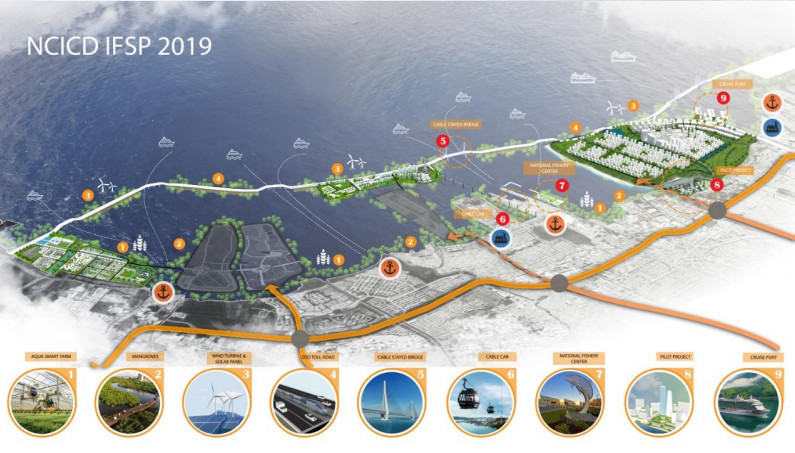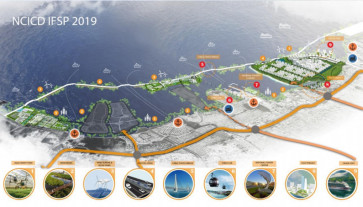Popular Reads
Top Results
Can't find what you're looking for?
View all search resultsPopular Reads
Top Results
Can't find what you're looking for?
View all search resultsYou can move the capital, but can’t replace Jakarta
For a long time, Jakarta has been Indonesia’s economic powerhouse, hosting over 70 percent of the country’s monetary circulation and contributing more than 17 percent to the national GDP.
Change text size
Gift Premium Articles
to Anyone
P
resident Prabowo Subianto recently revived a long-standing national discourse on the construction of a giant sea wall along Java’s northern coastline. This project has been on the National Development Planning Agency (Bappenas) agenda since 1995.
Jakarta Bay has been identified as the core site, with the President emphasizing the need for synergy between central and regional governments, particularly encouraging the Jakarta provincial government to consider contributing funding for the project’s initial phase. Prabowo’s narrative for this project signifies not only an ambitious national infrastructure agenda but also a powerful message: This megacity is here to stay.
That message subtly differs from the spirit behind the development of Indonesia’s new capital Nusantara. The government has long promoted Nusantara as a symbol of equitable development and the nation’s future. Advocates for the capital relocation have cited Jakarta’s complex urban challenges, such as chronic flooding, traffic congestion and over-urbanization, as reasons to shift the political center elsewhere.
However, moving the capital is not a short-term endeavor. While initial construction has begun, the relocation of essential government functions, the development of supporting infrastructure and the formation of a complete social and economic ecosystem will take decades to establish. Still, the government expresses confidence that Nusantara will become Indonesia’s political center by the end of 2028, as budget allocation for its next construction phase, for the 2025-2029 period, has been secured. Thus, Nusantara will continue to progress, regardless of its pace.
Despite the various dynamics at play, one significant question repeatedly arises: once Nusantara is officially established, will Jakarta truly be left behind? The most reasonable answer at this point is, "Not a chance."
At nearly five centuries old, Jakarta has not only embodied the nation’s history but has also evolved into the epicenter of economic, governmental and cultural dynamics. Its modern infrastructure, including the MRT and LRT systems, inner-city toll roads, Soekarno-Hatta International Airport and Tanjung Priok Port, clearly demonstrates its role as a global city. For a long time, Jakarta has been Indonesia’s economic powerhouse, hosting over 70 percent of the country’s monetary circulation and contributing more than 17 percent to the national GDP. Its dynamic, diverse and intellectually driven population has long fueled national growth.
Furthermore, it is home to the headquarters of state-owned enterprises, multinational corporations, foreign embassies and international organizations. This economic centrality cannot be easily replaced by a city built from scratch. Even so, this vitality exists alongside deeply rooted urban challenges. Congestion, pollution, floods and social inequality continue to weigh on the city’s livability and long-term sustainability.



















